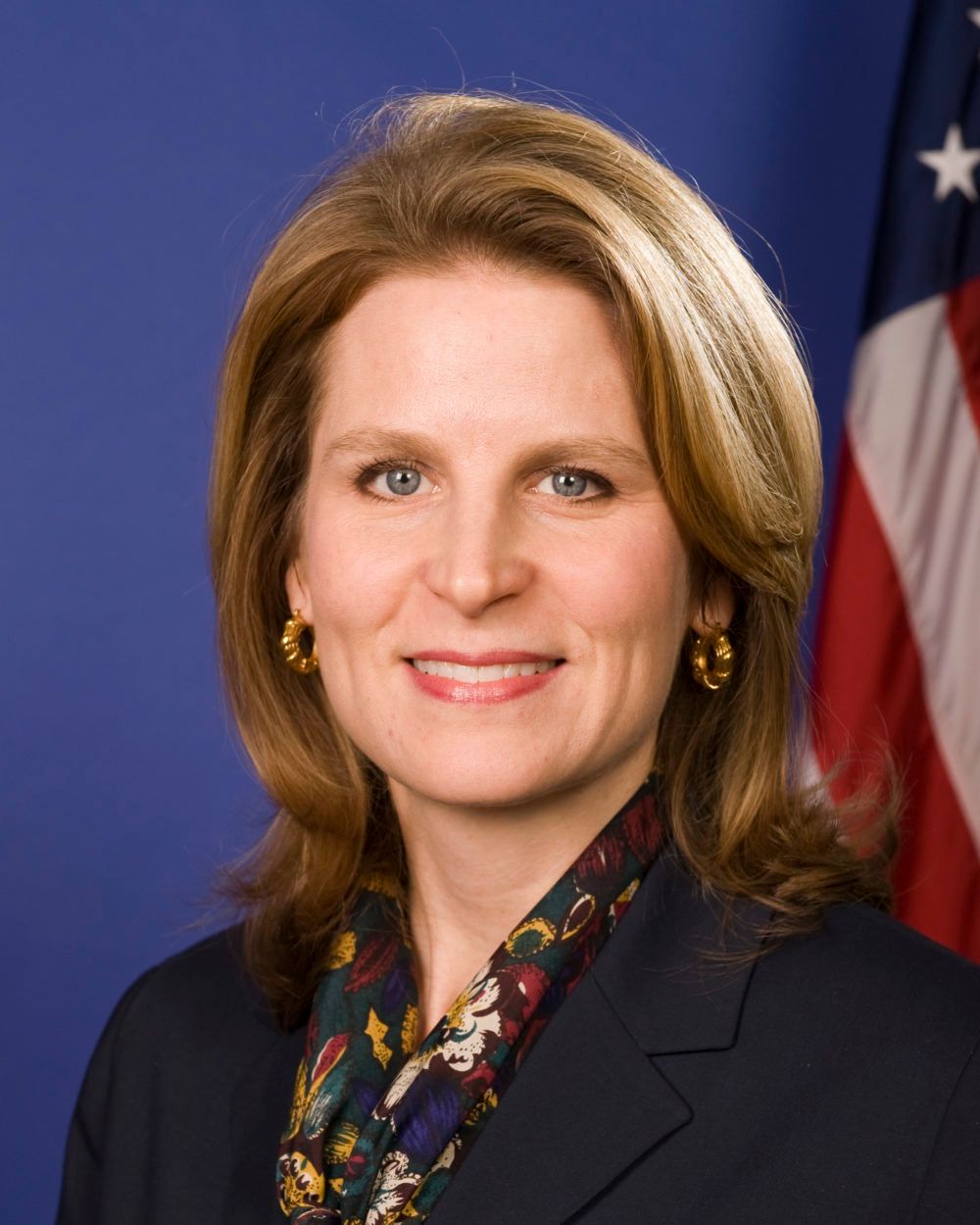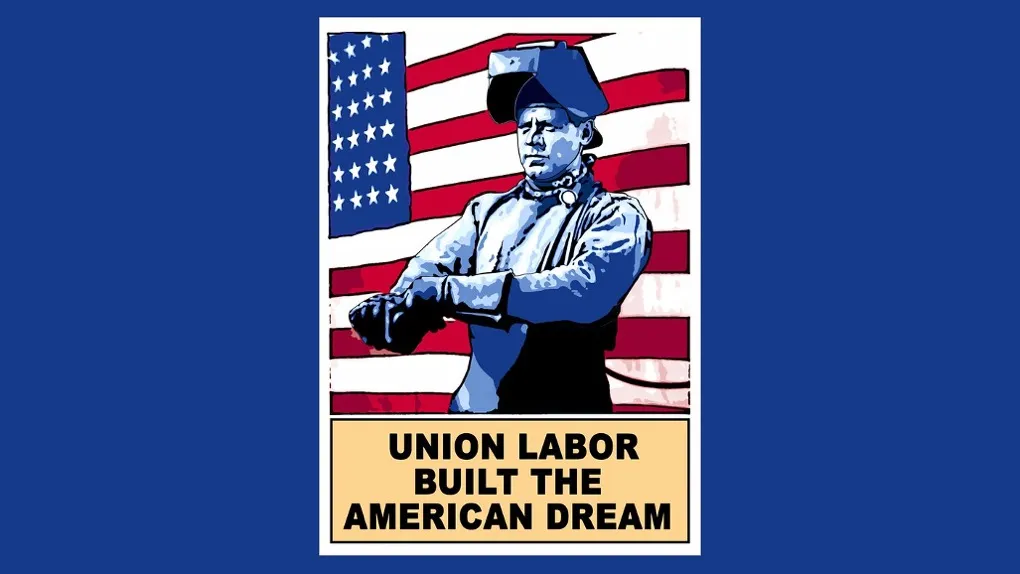The meaning of a holiday sometimes gets lost in its celebration.
To a lot of people, Labor Day is just summer's last hurrah – a last fling at fun in the sun (tempered again this year by COVID-19) before the kids head back to school.
Most importantly, Labor Day honors our labor movement – the country's "single most powerful force for progress," according to AFL-CIO President Liz Shuler.
"And I’m not talking about institutions. I’m talking about workers coming together to make change in our workplaces and our society," she added in her remarks at this year's Christian Science Monitor Labor Day breakfast. "That’s what we do."

It's hardly a secret that union workers enjoy better pay and benefits than non-union workers. Shuler suggested that John and Jane Q, Citizen are catching on.
"Public approval of unions is at a nearly 50-year high—65 percent and rising, including 71 percent of young people—as more Americans see unions as the solution to our broken economic rules," Shuler said.
History, the subject I taught for two dozen years, instructs that unions have always been the solution.
Before unions, 72-hour workweeks were common in industry. Workers were paid about $400 to $500 a year while factory owners made millions. There was no overtime pay, no holiday pay and no paid vacations.
Before unions, wage inequality was rampant. Whites got more pay than persons of color. Women got less than men, kids less than women.
Child labor was common. Boys and girls as young as 10 were forced to work to help their families make ends meet. But the ends almost never met.
Before unions, you worked until you were too old, too enfeebled, too sick, or too disabled to work. Then you fended for yourself. There were no pensions, no Social Security, no welfare, no Medicare and no Medicaid.
Before unions, you risked life and limb every day at work in mining, manufacturing, and transportation. Preventable accidents killed or maimed thousands of workers every year. Thousands more succumbed to toxic chemicals. Black lung disease shortened the lives of coal miners.
Safety and health laws didn't exist or were ineffective and largely unenforced. There was no workers' compensation and no health insurance.
Before unions, employers fired or laid off workers at will. There was no unemployment insurance.
Anyway, an old black-and-white print of a smiling Hubert H. Humphrey hangs in the office at the Western Kentucky AFL-CIO Area Council hall in Paducah.
Dubbed "The Happy Warrior," Humphrey was a senator and vice president. The Minnesota Democrat was one of the best friends unions ever had in Washington.
I treasure my paperback copy of his book, The Cause is Mankind: A Liberal Program for Modern America. Printed in 1965, its pages are dog eared and yellowed a bit. But the passage of 66 years has not dimmed its shining words:
"Union organizations have provided for millions of formerly inarticulate citizens the forum in which to hammer out policies affecting the world in which they live and which their children will inherit. And not only have they hammered out policies, but they have developed techniques and resources for implementing those policies."
Said Shuler: "Working people want to join us – 60 million workers would form a union today, according to MIT, including half of the tech workforce."
Even so, "today in America, it’s easier for a corporation to stop a union than it is for a worker to form one," according to Shuler.
That's always been true. Laws protecting union rights are weaker in America than in any other industrial democracy. In no other such country have employers more stubbornly and violently resisted unions.
When America rapidly industrialized after the Civil War, workers began to organize unions and demand their fair share of the enormous wealth factories, mines, and railroads were producing for their owners.
Employers and their allies in the press smeared unions as "un-American" and even "communist." They asked government to help them fight off unions.
Help was almost always forthcoming. Elected officials from mayors even to presidents pitched in.
Union-busting was bipartisan. President Rutherford B. Hayes, a Republican, sent in federal troops to help crush the Great Railroad Strike of 1877. In 1894, President Grover Cleveland, a Democrat, dispatched U.S. soldiers to smash the Pullman Strike.
Democratic and Republican city and county officials and governors turned out cops, sheriff's deputies, and state militias to arrest strikers. Lawmen and troops also aided heavily armed detective agencies and company guards in escorting scabs through picket lines.
Shuler praised AFL-CIO-endorsed President Joe Biden, a Democrat, for heading "the most pro-worker administration in history." She also lauded "a working [Democratic] majority in Congress."
Thus, Shuler challenged, "We must meet this moment by building a modern labor movement. A movement that is open and accessible and diverse. A movement that keeps pace with a changing economy – the 'She-session' and Great Resignation.
"A movement in every sector and every community, with women and people of color at the center, where every worker has the right to a good, sustainable, union job. All of that depends on putting working people where we belong: at the center of policy and the national conversation."
Labor's top priority this Labor Day is helping push to passage "the Richard Trumka PRO Act and the public sector PRO Act right alongside it," she said, The two measures are "the centerpiece of our Workers First Agenda" and represent "the policies we voted for in the 2020 election."
Organized labor has always advocated for policies that benefit more than union members. The union movement still is, according to Shuler.
"We’re putting the full might of our movement into voting rights, the John Lewis Voting Rights Act, and the For the People Act.
"We’re championing the budget resolution with child care tax credits, and the first ever federal paid family and medical leave benefit.
"It also includes a long overdue path to citizenship for immigrant workers.
"And a major provision of the PRO Act: real penalties against employers who interfere with our right to form a union."
Shuler promised, "To meet this moment, we’re going to be bold and inclusive. Every working person in every kind of job can have a place in our movement. Our doors are wide open; we invite people to join us as we take on issues like fairness, racial justice, and gender equity – all part of a modern labor movement.
"And we are going to innovate because just focusing on protecting what we have is far more dangerous than taking risks."
Unions have long been been risk takers on behalf of the poor and powerless against the rich and powerful. The labor movement today allies itself with fellow risk takers for racial, social and economic justice like Dr. Martin Luther King Jr. He saw the union movement and the civil rights movement as natural allies.
"Negroes are almost entirely a working people," he told the 1961 AFL-CIO convention. "There are pitifully few Negro millionaires, and few Negro employers. Our needs are identical with labor's needs — decent wages, fair working conditions, livable housing, old age security, health and welfare measures, conditions in which families can grow, have education for their children and respect in the community.
"That is why Negroes support labor's demands and fight laws which curb labor. That is why the labor-hater and labor-baiter is virtually always a twin-headed creature spewing anti-Negro epithets from one mouth and anti-labor propaganda from the other mouth."
King laid his life on the line and lost it in 1968 to a racist assassin in Memphis. He had gone to the city to stand in solidarity with striking AFSCME sanitation workers.
"A modern labor movement can build an America where every working person has access to the life-changing power of a good, sustainable, union job," Shuler concluded. "No exceptions. No one left behind."
HHH would have welcomed Shuler's words. "Unions have made democracy and citizenship and the right to petition a reality to millions of men and women," he also wrote.
--30--








